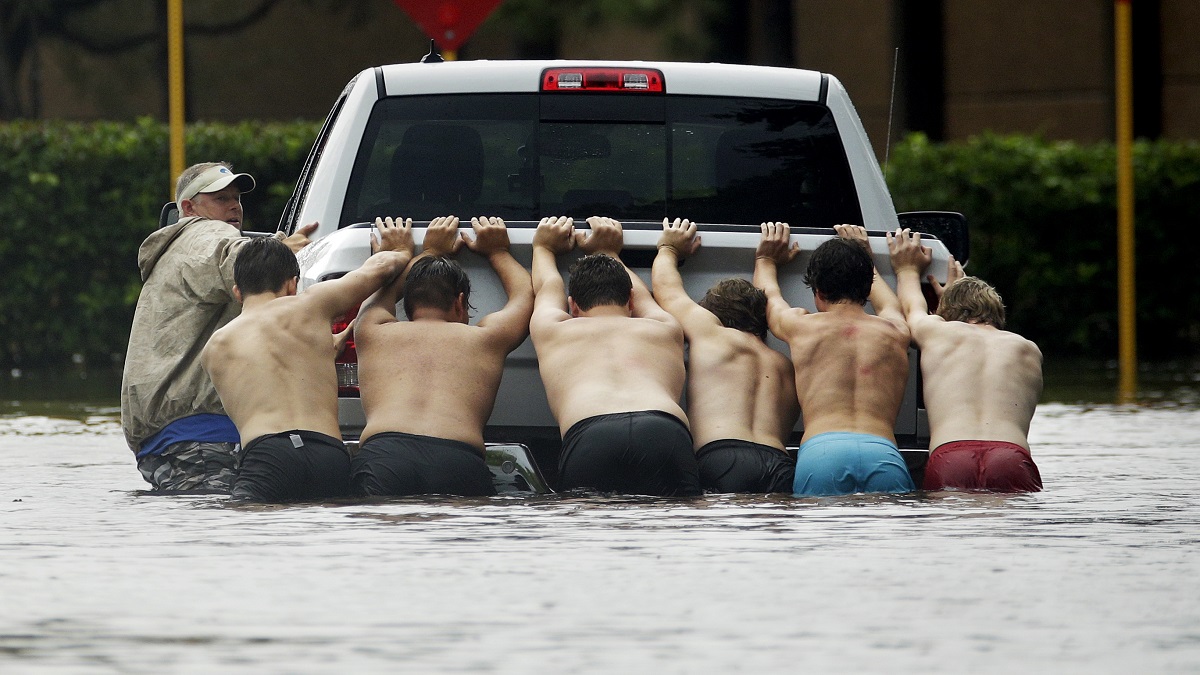Flooding brought on by Harvey destroyed an estimated 500,000 vehicles across Houston, including both personal and dealer stock. In a region built around the oil industry, many residents were left stranded.
Videos by Rare
RELATED: While some took action during Harvey, local officials allegedly drank
Hardest hit were lower-income residents who rely on their vehicle for work. Living paycheck-to-paycheck, these struggling individuals find themselves with scant resources to help them rebuild.
Daniel Gonzalez shared his story with the The Texas Tribune — a story which resonates with many low-income families facing the daunting process of rebuilding.
“I don’t have nothing to do,” he explained. “I don’t have work. I don’t have a car.”
Many lower-income families have minimum liability insurance on their vehicle. Since their insurance policy won’t pay for flood damage, they are left holding the tab for replacing or repairing the damaged vehicle. With little to no money, that becomes a impossible feat.
While public transportation is a viable option in the city center, it’s not on the outskirts of Houston where many low-income residents reside.
RELATED: Could Harvey mean that Houston will get snow this winter?
“Your public transportation, your commuting options are awful,” Andrea French, executive director of the Transportation Advocacy Group, told The Texas Tribune.
Known for its web of highways and long commutes, Houston’s culture is such that residents are expected to drive. After a disaster like Harvey, that mentality may have to change lanes.



